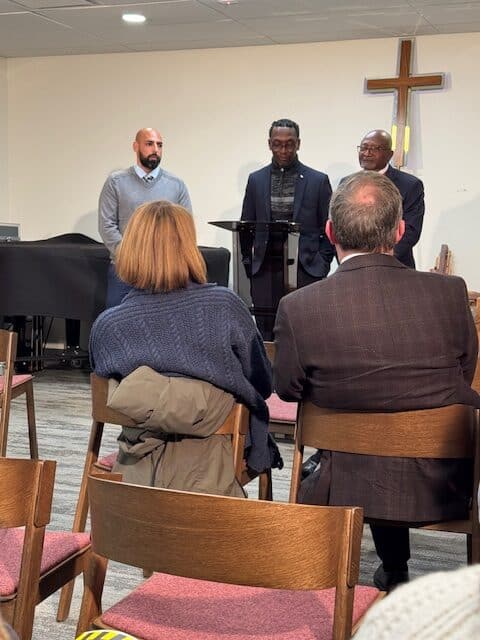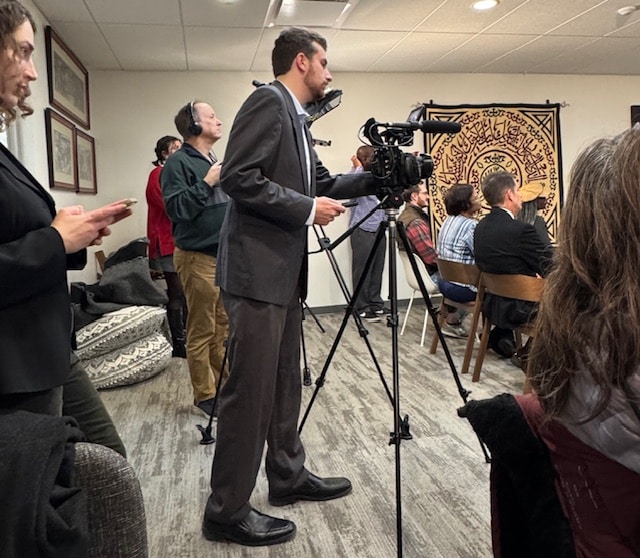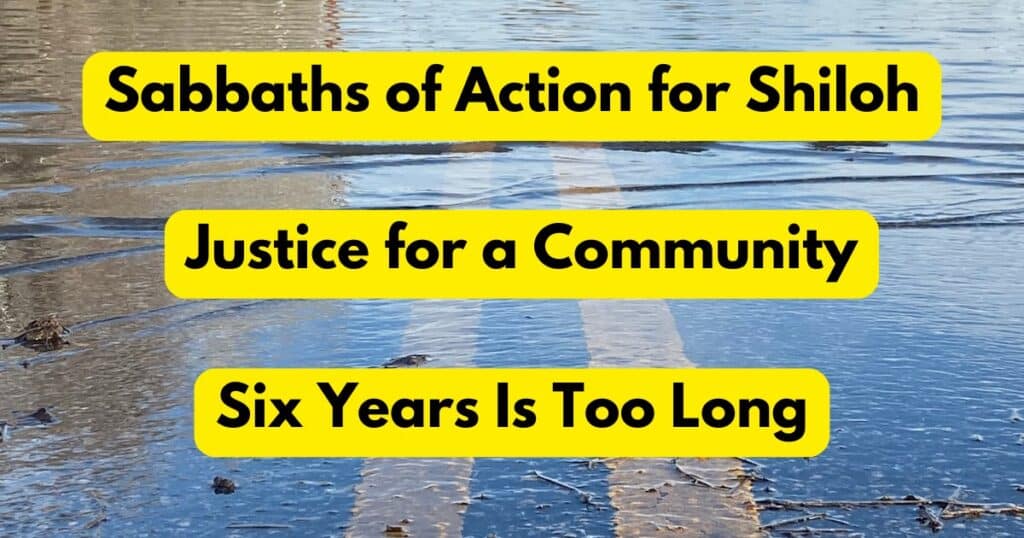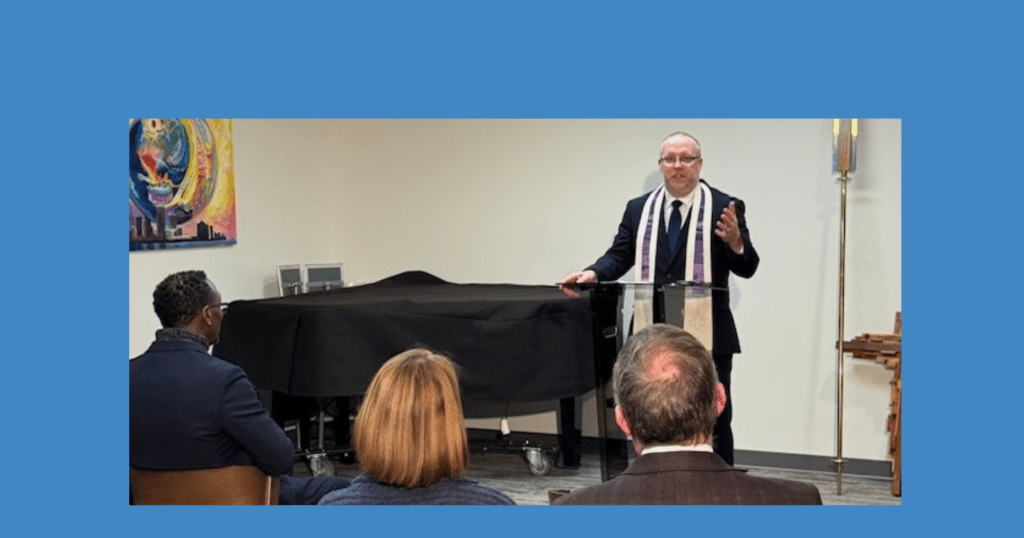News conference at UCC office spotlights Alabama community’s environmental racism fight
Members of the Sierra Club, the Bullard Center for Environmental and Climate Justice, and the Environmental Justice Ministry of the United Church of Christ, gathered on Dec. 9 at UCC’s Cleveland office, to address the ongoing severe flooding the Shiloh community of Elba, Alabama, has been facing since the poorly-designed expansion of Highway 84 six years ago.

Citing the flooding “a matter of urgent justice,” the groups also called upon Secretary of Transportation Pete Buttigieg to help as he promised earlier in 2024, when he visited the site in April.
Buttigieg spoke before the Cleveland City Club on Monday, Dec. 9, and members of the coalition attended in hopes they could talk to him about the issue.
While they did not get a chance to meet with Buttigieg in Cleveland, Pastor Timothy Williams, executive director of the Shiloh Community Center, who is also a homeowner who has been affected by the flooding, said they will reach out to Buttigieg’s office to try to meet before this administration transitions in January.
Fulfill the promise
At the news conference, Williams called for action.
“We ask Secretary Buttigieg to fulfill the promise he made to our community when he walked the site of the damage with me in April of this year. He assured me he would get justice for Shiloh.”
Ever since 2018, when the Alabama Department of Transportation (ALDOT) — using federal funds — expanded the highway running through the town, stormwater runoff has been flooding Shiloh homes, creating an ongoing crisis of homes sinking into mud, mold growing and roofs collapsing.
On Oct. 4, the Federal Highway Administration announced a Voluntary Resolution Agreement (VRA) with ALDOT to address the the Shiloh flooding. The VRA is the product of an investigation under Title VI of the Civil Rights Act. Title VI prohibits racial discrimination in projects that receive federal financial assistance, like the Alabama highway project.
However, the group that gathered at the UCC on Monday said the VRA is not a solution for the harm that has already been done to the people of this historically Black community.

The worst case in 45 years
“This is the worst case I have seen in 45 years,” said Dr. Robert Bullard, founder and director of the Bullard Center in Houston, Texas. “This problem has destroyed inherited wealth. The VRA solution is not enough — the people of Shiloh deserve compensation for their homes. We have to fight for those who are sick from the mold this situation has caused. The road to justice for Shiloh runs through the UCC. We cannot let this problem destroy the American Dream for this community.”
Gonzalo Valdez, the deputy regional field director of the Sierra Club, said his organization stands with Shiloh. “The government has shown blatant disregard for this community, endangering property and the lives of these residents. For Pete’s sake,” he declared, “we need justice immediately.”
At the start of the conference, the Rev. Brooks Berndt, minister for Environmental Justice at the UCC, opened with a reminder from Galatians 6:9, calling upon all those seeking justice to “not grow weary of doing good, for in due season we will reap, if we do not give up.”
The call for justice is a call from God
Berndt said that the Shiloh community reached out to the UCC because of the denomination’s long relationship working with the Sierra Club and the Bullard Center.
“From the origins of the environmental justice movement in the 1980s, the UCC has mobilized its members and churches to stand in solidarity with those most impacted by environmental racism. We live up to what it means to truly follow Jesus when we join with others in solidarity. The call for justice is a call from God,” he said.

Congregations can help
Berndt offered ways that UCC congregations can help Shiloh, which include:
1.) Sharing Shiloh’s story and educating those in the congregation about Shiloh’s plight and the systemic injustices faced.
2.) Lifting Shiloh during the time of prayer.
3.) And, taking action by signing petitions and writing to federal leaders.
Berndt added that coalition partners can provide additional resources, including video testimonials, a sample bulletin insert, and action guides, to help you further. Fill out this form if interested in participating.
Secretary Buttigieg’s City Club appearance is available to view here.
Content on ucc.org is copyrighted by the National Setting of the United Church of Christ and may be only shared according to the guidelines outlined here.
Related News
A Moment of Silence
The weekend news was alarming. Two students shot and killed with 9 injured at Brown University...
Read MoreIn hope-filled worship service, UCC and United Church of Canada celebrate full communion past and future
On Saturday, Dec. 13, many from the United Church of Christ (UCC) and the United Church of...
Read More‘A Gift of God to the World:’ Christmas greetings from the General Minister and President
As Christmas quickly approaches, UCC General Minister and President/CEO the Rev. Karen Georgia...
Read More


